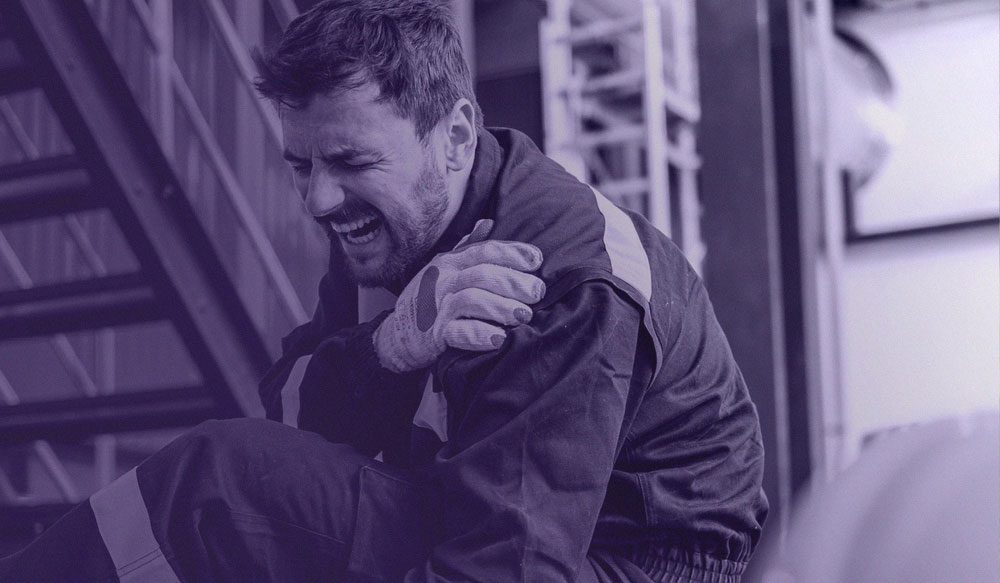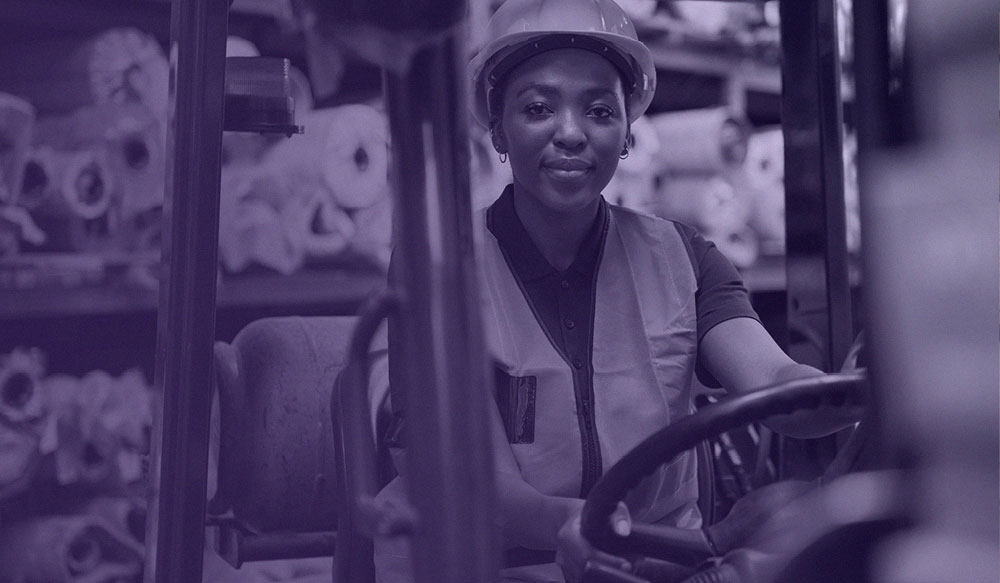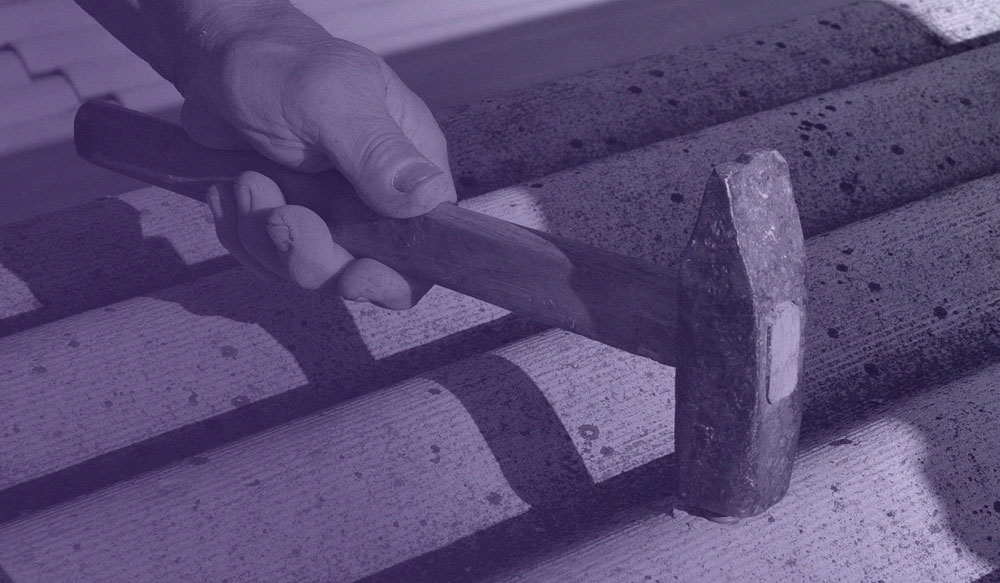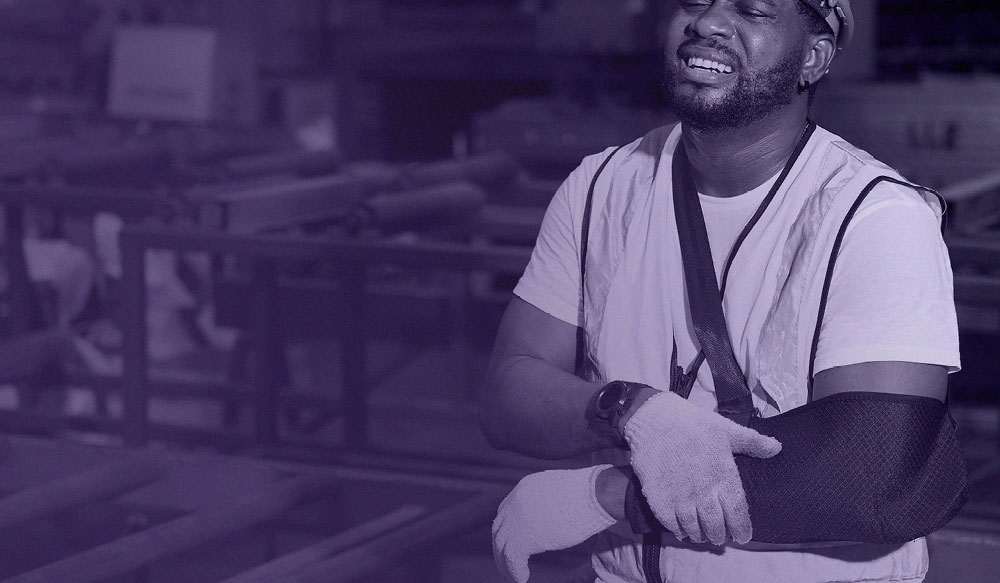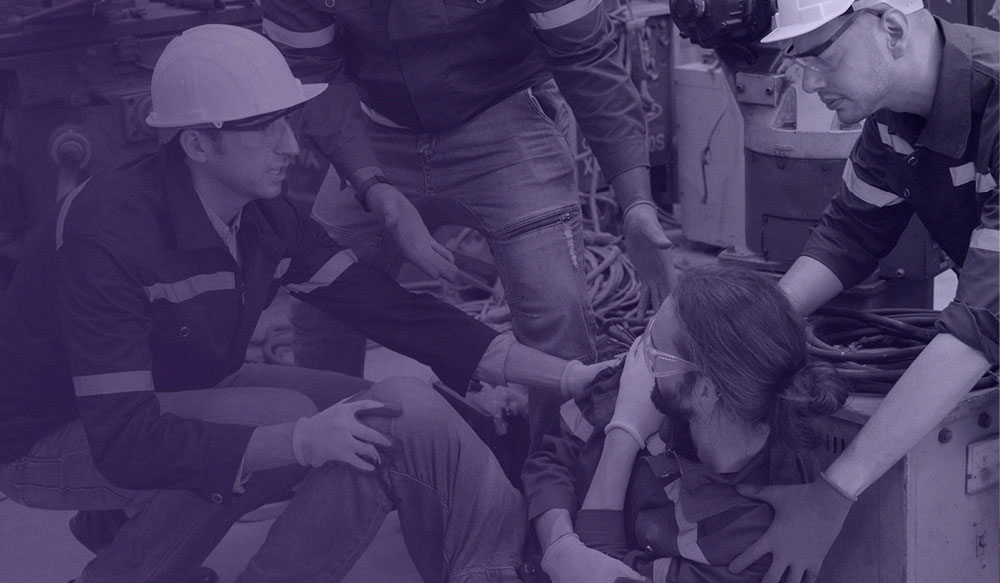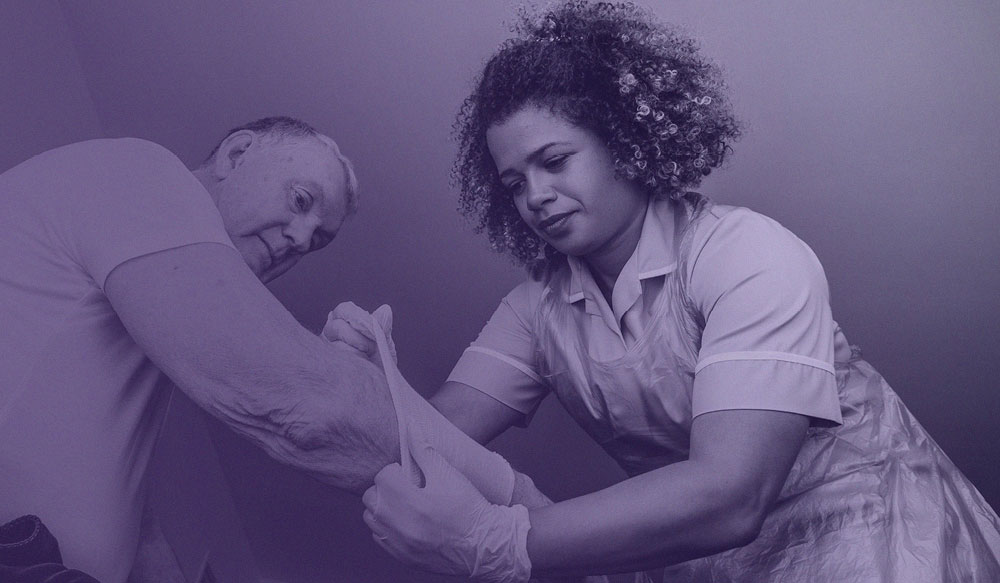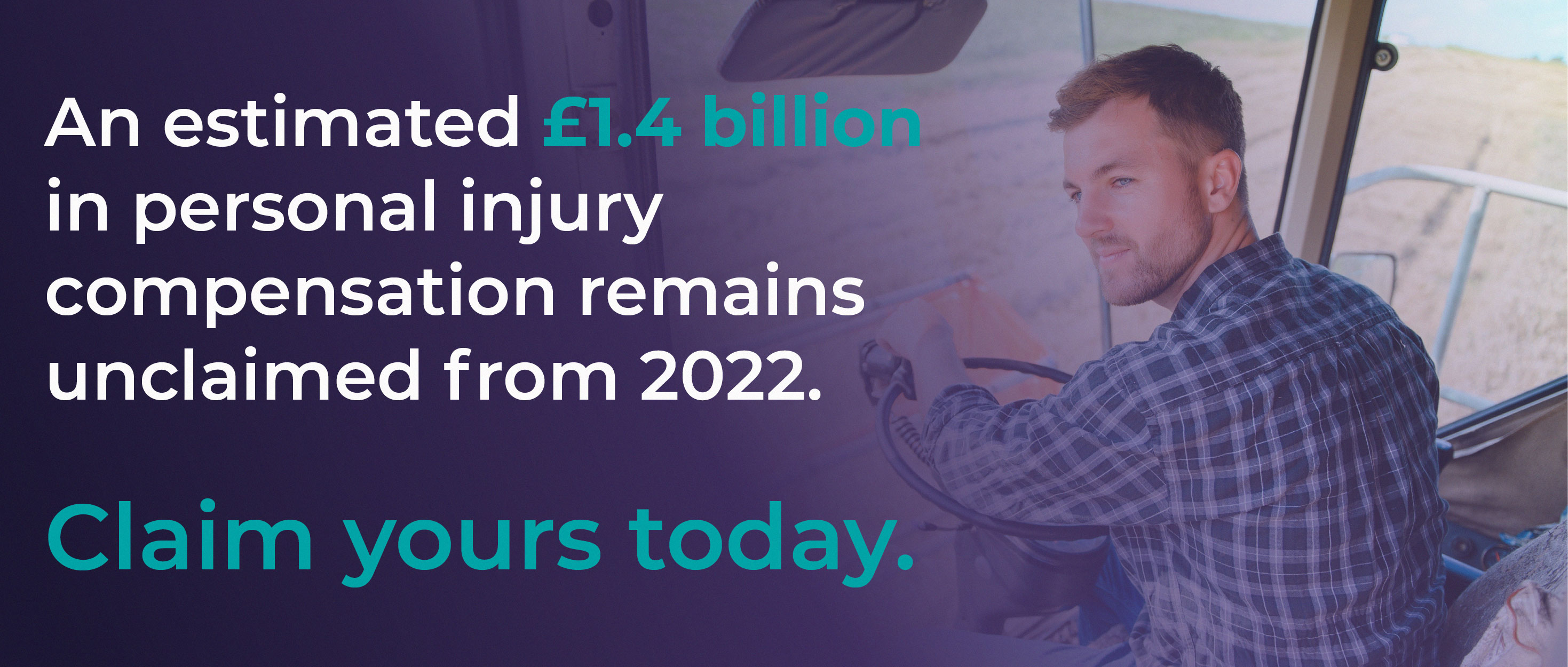
Editable block title (hide option available)
Accidents at work are often avoidable, and yet they still happen.
If yours feels wrong, let us help make it right.
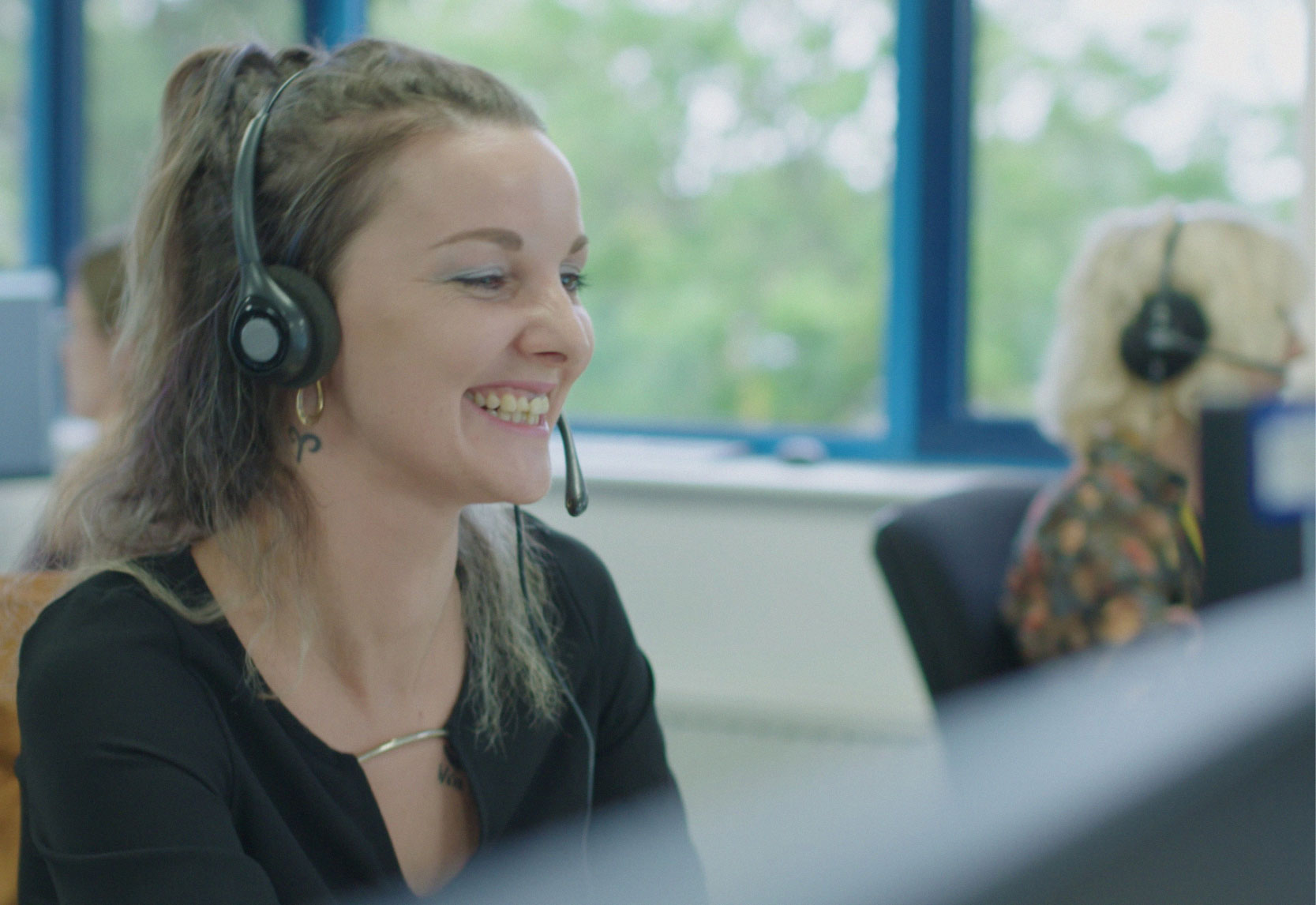
Talk it through with your helpline advisor.
Our friendly team is on hand 7 days a week, ready to listen to you and offer advice. We'll tell you within minutes if we think you have a claim.
Can I make a work injury claim?
You may be able to claim compensation for your work injury if your accident at work happened within the last three years. If your injuries or work-related illnesses were not caused by you, they may have been caused by employers or managers failing to follow health and safety rules or breaching their duty of care.
You work hard to earn a living and you and your family may depend on your income. An injury at work can require time off for recovery becoming stressful for you and your family. You may have been off work or perhaps even had to quit your job entirely as a result of your accident. A loss of earnings affects your ability to pay household bills, care for your family or meet other commitments. And it's simply not fair on you.
You don't deserve to feel anxious about your health, job, or money after an accident at work. A work injury claim can alleviate the financial pressures and provide some relief for you and your family. We will offer you advice, support, and answers about your work accident. And, we'll check your eligibility to claim. Just give us a call.
How much work injury compensation could I claim?
How much work injury compensation could I claim?
It's only natural to want to know how much your accident at work claim could be worth. Unfortunately, your work injury lawyer won't be able to tell you exactly how much you might be entitled to until they've started negotiating on your behalf.
Use our workplace injury compensation calculator to find out just how much your claim could be worth. Or, you can find estimated payouts for all types of personal injury from the Judicial College Guidelines. Your work injury lawyer won't be able to tell you the exact total of how much you might be entitled to until they've started negotiating on your behalf.
The amount of work injury compensation you could win depends on your injury or illness, its severity and the effect it's had on your life. When you make a claim with us, your solicitor will consider the full impact of what you have suffered. It's important to us that you're properly compensated.
It's not just about your pain and physical suffering. There are several other compensation areas your solicitor will include:
- Any time off work and lost earnings.
- Any future loss of income.
- Any changes to your ability to work.
- Psychological trauma.
- Care or support you have needed, even if given free by family and friends.
- Any changes you might need to your home or car.
- Paid medical treatments, travel costs for treatment and accommodation costs.
You won't have an estimate of the potential amount of work injury compensation you may receive until your solicitor has started negotiating with your employer's insurers. However, we have years_since years' worth of experience handling accident at work claims. To get an idea of how much you can get for your accident at work claim, our accident at work compensation calculator can estimate the amount you could receive.
You can get free and impartial advice now on .
| Injury | Guide amount |
| Minor brain or head injury | £2,070 - £11,980 |
| Fractured cheekbone | £2,180 - £9,570 |
| Mild tinnitus to total deafness | £10,040 - £87,410 |
| Whiplash | £240 - £4,345 (with recovery in 1-2 years) |
| Serious shoulder injury | £11,980 - £18,020 |
| Back injury causing permanent symptoms | £11,730 - £26,050 |
| Hip or pelvis injury | £3,710 - £24,950 |
| Fractured forearm | £6,190 - £18,020 |
| Wrist injury | £3,310 - £44,690 |
| Hernia | £3,180 - £13,970 |
| Ankle injury | £12,900 - £46,980 |
| Post-Traumatic Stress Disorder | £3,710 - £56,180 |
Compensation Calculator
Compensation Calculator
We’ll calculate your compensation in a few minutes.
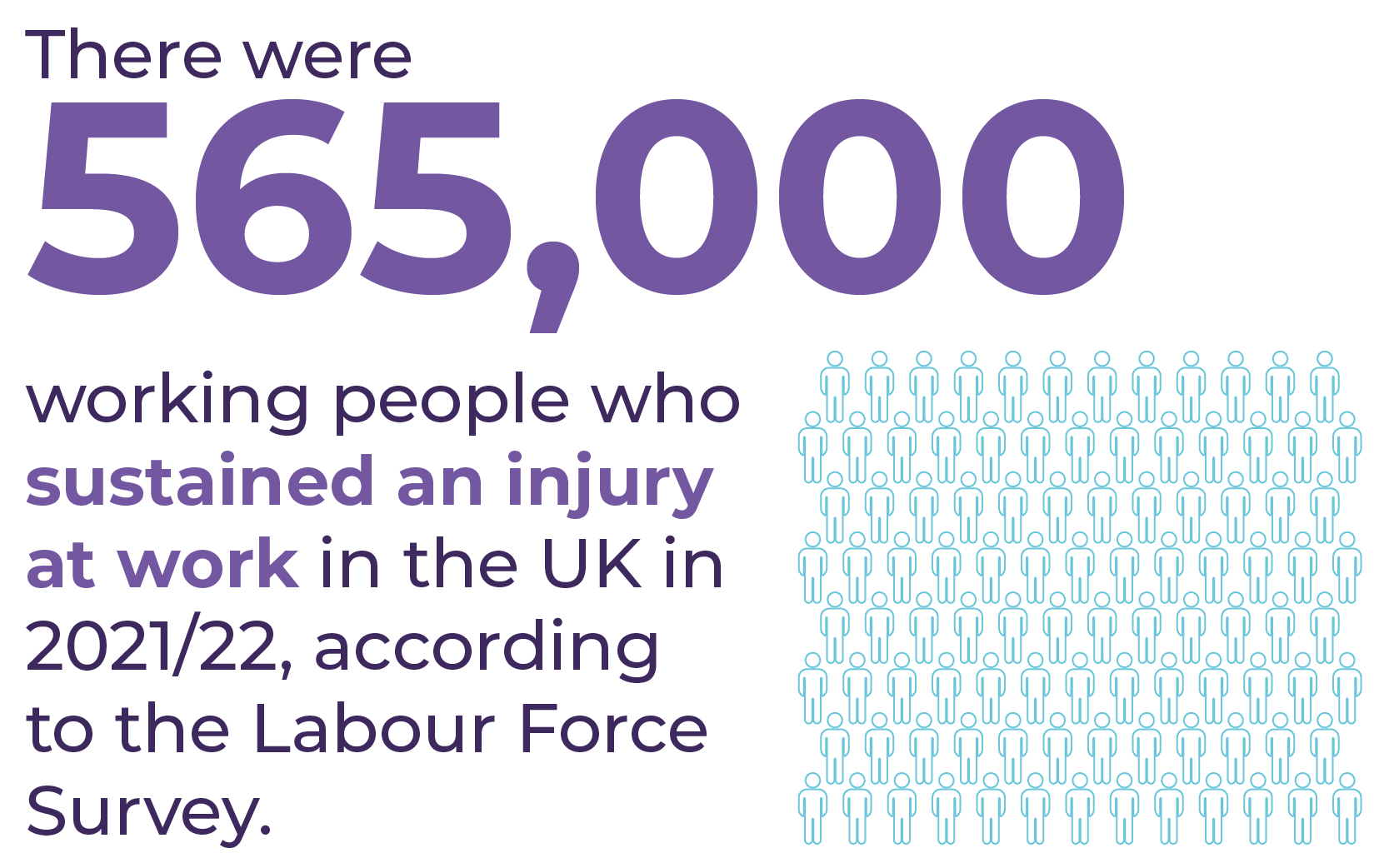
Workplace Claim Types
We helped Paul make it right when he was hit on the head by a falling steel tool at work. This is his experience…
For weeks afterwards I was struggling to do simple tasks and was getting headaches and pressure behind my eyes. As an engineer, the fact that I was struggling to do maths told me that something wasn't right. I went to the hospital and they said I had a severe concussion.
When I rang up National Accident Helpline, I forgot everything I was planning to say, but the advisor was brilliant and walked me through the story so that he could understand and piece the information together.
I was really struggling and emotional at the time, but he had time for me, and I didn't feel rushed. A lot of people talk to you with an answer already in mind, they aren't really listening, but this was different. I felt like he really listened to me.
Paul Jenkins, Leicestershire
Editable block title (hide option available)
What are the most common workplace accidents and injuries?
What are the most common workplace accidents and injuries?
Overall, there are several reasons behind accidents in the workplace. These include:
- Dangerous working practices.
- Poor or non-existent personal protective equipment (PPE).
- Weak risk assessments.
- Preventable spillages.
- Unsatisfactory or poorly enforced safety procedures.
- Badly maintained equipment.
The Health and Safety Executive conducts regular and detailed research into injury and illness in UK workplaces. Let's have a look at the seven most common injuries and the causes.
- Slips, trips or fall on the same level: The most common cause of injury with bruising, strains, sprains, fractures and breaks.
- Lifting and handling: Soft tissue, spinal strains and bone breaks.
- Being struck by a falling object: Often a problem in warehouse-style environments where stock or materials are stored at height.
- Falling from a height: Ladder, roof, scaffolding and exterior work.
- Workplace violence: Threats, assaults, cuts, scratches and bruising.
- Contact with moving machinery: Typically causing lacerations and cuts.
- Collision: Walking into a stationary object when not paying attention.
According to HSE figures for 2017-2022, 26% of all fatal injuries were falls from a height.
Other risks to health at work include:
- Toxic fumes: Inhalation that causes illness or respiratory damage.
- Industrial deafness: Exposure to loud, persistent noise with poor protection.
- Repetitive strain injury (RSI): From keyboards to pneumatic equipment.
If any of these seem familiar, you could have grounds for an accident at work claim. Our work injury lawyers are experienced in handling claims against these types of injury in the workplace.
What if I work in a high-risk industry?
What if I work in a high-risk industry?
Even with extensive health and safety regulations, some industries have worryingly high accident rates. Construction, energy, and steel production are examples of fundamentally high-risk working environments.
But most accidents at work could still be prevented. Usually through better, more thorough training and HSE-compliant safety measures and maintenance.
A lack of compliance can cause various work injuries as a result of:
- Poorly maintained equipment.
- Support structures assembled incorrectly, such as scaffolding or warehouse racking.
- Forklift trucks being badly maintained or handled dangerously.
- Uncleared liquid spillages that cause toxic chemicals or biological materials.
What happens after a workplace accident?
What happens after a workplace accident?
There are several things you should do after an accident at work. First and most importantly is to make sure you seek immediate medical attention.
Next, you must report what happened:
- Ensure you - or a colleague - reports the accident to your manager.
- Make sure that your employer records the accident in the company accident book.
- Tell your trade union rep if you're a member - they are there to help you.
- Get witness statements from colleagues if you can. Ask a good workmate or your union rep to do so if you're incapacitated or off work.
- Your employer must report certain accidents and injuries to the Health and Safety Executive (HSE) under RIDDOR. These are the Reporting of Injuries, Diseases and Dangerous Occurrences Regulations.
If you've been seriously injured and are hospitalised, a colleague or manager will usually arrange these things for you.
- Should you need time off work to recover, you should be entitled to statutory sick pay.
- Serious injury with long-term or permanent effects means you may be eligible for industrial injuries disablement benefit.
- Make sure you talk to your employer about your employment rights after injury.
The Health and Safety Executive investigate all reported cases of serious injury and occupational disease.
Claim Without Worry
We carried out research that showed 44% of respondents worry that making an accident at work claim will lose them their job. It won't.
It is against the law for an employer to act against you based on a personal injury claim.
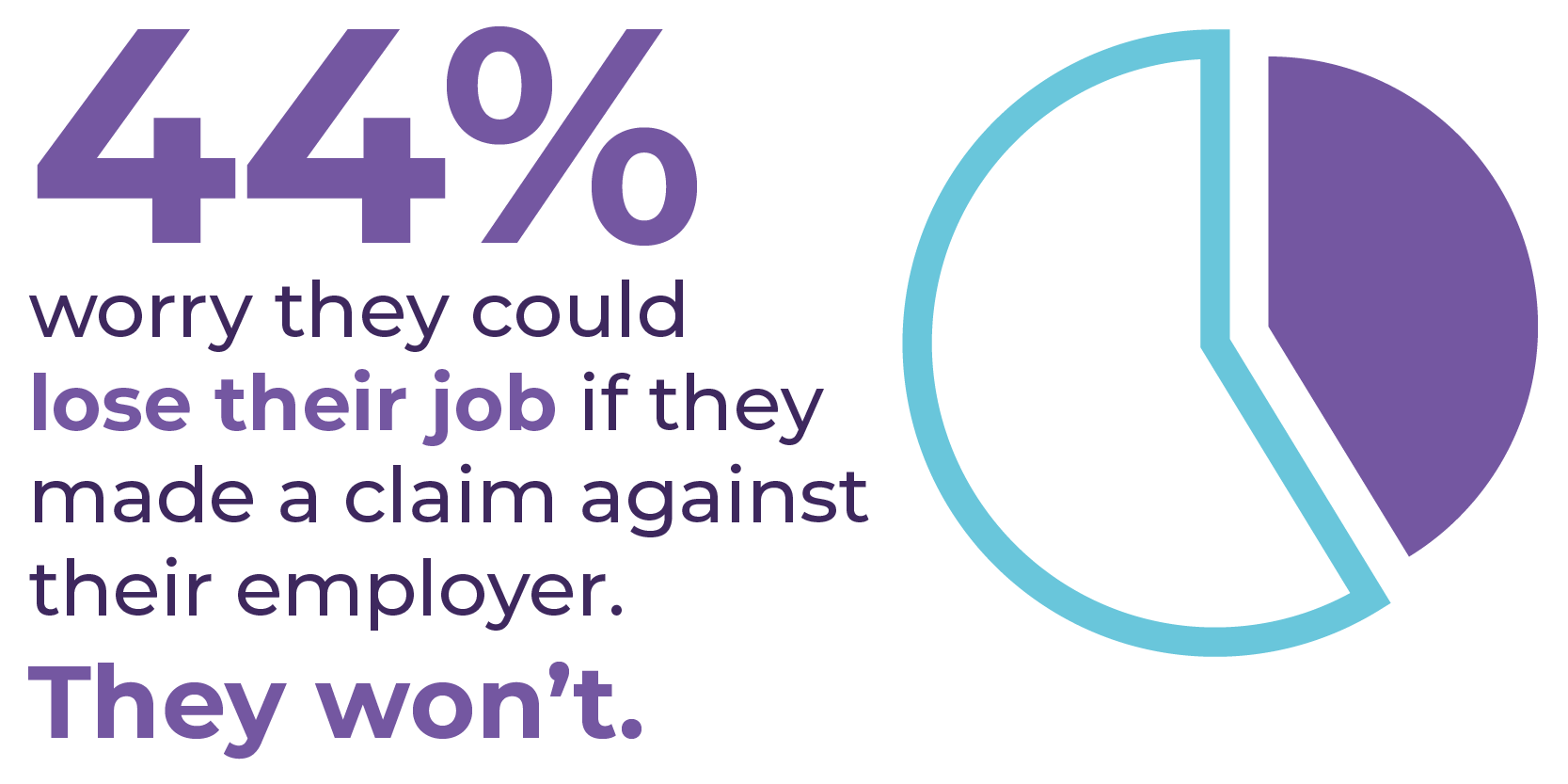
Do I have grounds for a work-based compensation claim?
Do I have grounds for a work-based compensation claim?
Most workplaces have a high potential for causing serious and long-lasting injuries when they're not maintained safely. This is particularly true if people are poorly trained or lack the right personal protective equipment (PPE) for the job.
For instance, an estimated 300,000 people in the UK suffer from back pain due to work-related manual handling accidents, according to Unison.
You may not think you've suffered a serious injury. However, you'd be surprised how many people call us who have been hurt badly without realising.
If you're unsure about your injury, ask yourself the questions below. If you answer yes to any, then get in touch. You may have suffered a workplace injury worth investigating:
- Am I still receiving medical treatment for an old injury or illness picked up at work?
- Have I been making repeat hospital visits to treat the same condition?
- Have I taken time off work to recover from an injury or other condition?
- Have my injuries or condition stopped me returning to work in the same role or doing the same hours?
Work injury compensation can help pay for your recovery and any changes you have to make to your life - either historically, now or in the future. In some cases, your solicitor may be able to arrange an interim payment. This is a portion of your compensation that takes care of your immediate needs before the final settlement comes through.
If you are in any doubt, then it is always worth speaking to one of our personal injury advisors. We're open seven days a week.
How long does it take to make an injury at work claim?
How long does it take to make an injury at work claim?
Finding out if you have a potential accident at work claim is simple. Our personal injury advisors will typically be able to tell whether you have a claim in the space of one telephone call. How long a claim takes to process depends on the nature and severity of your injuries.
- A clear-cut claim where injuries are minor and your employer admits liability can be settled in six to nine months.
- Complex cases possibly involving serious injury and an HSE investigation naturally take longer. One to two years - or possibly more - are the norm.
However, no two cases are the same. The work accident lawyer we appoint for you will be able to give you a more accurate estimate when they've reviewed all the details.
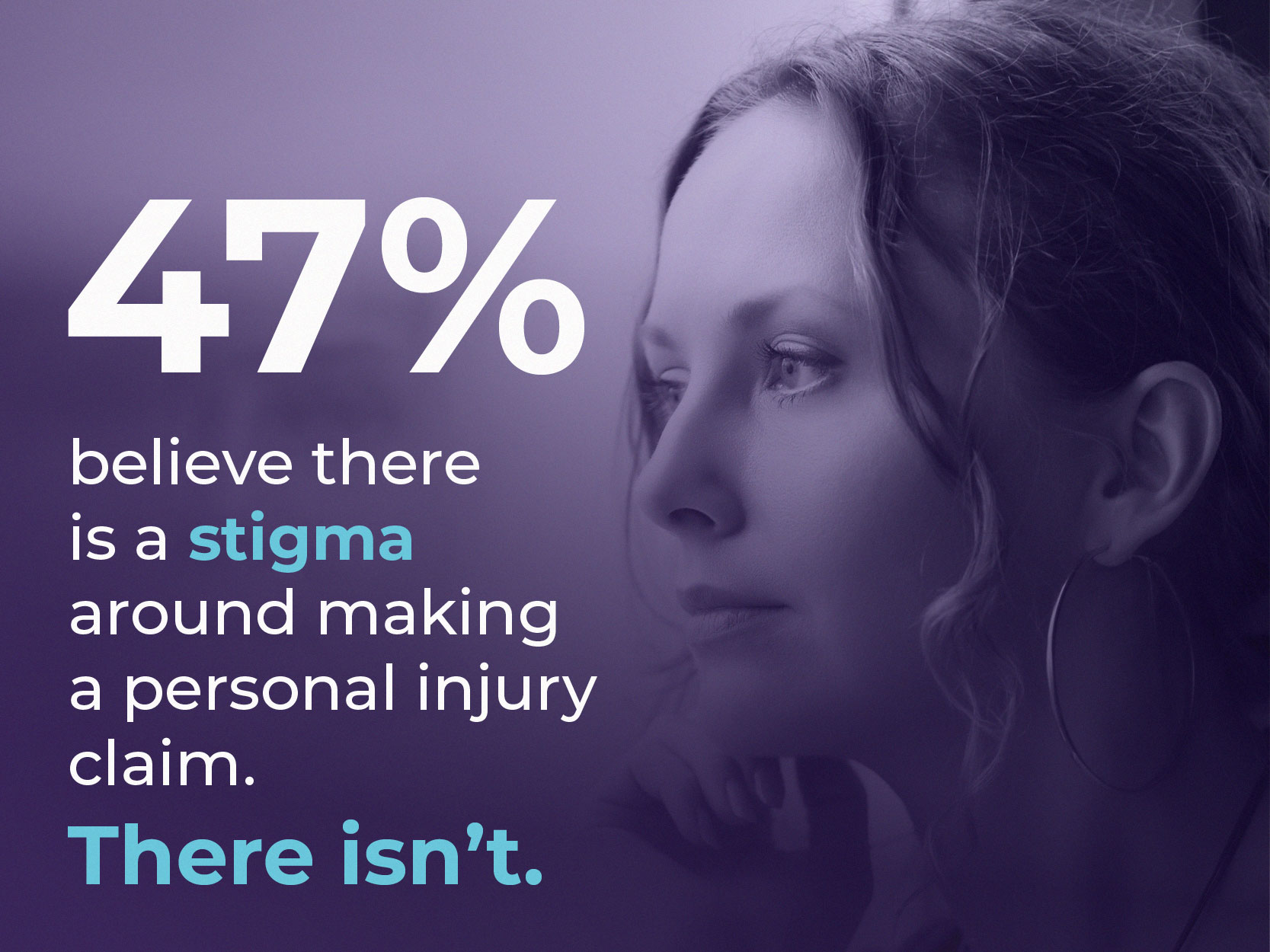
Accidents at work can range from minor to totally life changing. Getting the care that you need is the first step to recovery. Even if your injury seems minor, there could be unseen internal damage that could cause complications. My advice is to see your GP as soon as you can or go to A&E immediately if needed.
Dr Hilary Jones
General Practitioner and medical broadcaster
What types of accident at work injury can I claim for?
What types of accident at work injury can I claim for?
We have over years_since years' experience helping people make things right after an accident at work. During that time, we've learnt that there's no such thing as a standard workplace accident.
Below we've linked to some useful information on certain types of work accident, which may help you:
- Construction site accidents.
- Accidents in a factory or warehouse.
- Injuries while serving in the military.
- Unsafe industrial sites.
- Accidents while working in an office.
- Agricultural and farming accidents.
All employers have a ‘duty of care‘ towards their employees - they're required by law to protect you.
Your employer must take steps to make sure your working environment is safe for you and your colleagues to work in.
If an employer doesn't follow the general health and safety regulations, such as The Health and Safety at Work Act 1974, then they've put you at risk and they can be held responsible for your accident.
Can I claim for occupational illness or disease?
Can I claim for occupational illness or disease?
Yes, you can. Thousands of people every year are affected by work-related illnesses or contract diseases during employment. Sometimes the working environment can aggravate the symptoms of a pre-existing condition.
The law requires employers to provide satisfactory protection and safe work processes for their people. Their employees can be entitled to work injury compensation if this isn't provided. Good health and safety practices must be in place to minimise the risk of occupational illness.
These are some of the common medical conditions contracted in UK workplaces.
- Noise-induced hearing loss: Partial or full deafness caused by sudden or persistent exposure to loud or highly penetrative sounds.
- Vibration injuries: Limbs and joints damaged by heavy use of vibrating power tools or equipment.
- Respiratory and lung diseases: Exposure to harmful substances like fumes, dust, silica or asbestos.
- Industrial dermatitis: Inflammation, irritation and hypersensitivity of the skin from over-exposure to dust, chemicals and adhesives - or even water.
- Occupational cancer: Usually lung cancer - mesothelioma - caused by exposure to asbestos.
- Musculoskeletal disorders: Muscle, tendon and nerve conditions caused by things like repetition, constrained body position or cumulative trauma.
If you believe you've fallen ill because of a duty of care failure, you may be able to make an industrial disease claim. The three-year time limit for making a claim begins when you first notice the symptoms, or the condition is diagnosed.
What happens during a workplace accident claim?
What happens during a workplace accident claim?
If you think you may have grounds for a work injury compensation claim, first seek expert advice. Talk to us for free and in confidence. Tell us your story, your way and at your pace. We'll let you know if we think you may be eligible to make a claim.
If we think you are and you decide you'd like to go ahead, we'll pair you with one of our expert workplace accident solicitors. We can usually do this on the same call to get things moving for you.
We also understand that you may have natural reservations about making a claim against your employer. That's why we'll never pressure you or leave you feeling rushed into a decision.
Should you proceed with the claim, there are several things you can do to support your claim.
- Gather photographic evidence: It may not always be possible but clear pictures of the accident area are really helpful.
- Gather any witness statements: These will also help your solicitor build your claim.
- Record your injury details and symptoms: A regular injury diary will support the medical evidence and show the pace of your recovery.
- Record any financial losses: This comprises all the financial expenditure you've made personally as a direct result of your injury.
- Ask a colleague to help: A trusted co-worker or your trade union rep can help you sort things out.
Once your solicitor has all the evidence to hand, they'll submit the claims notification form to your employer's insurance company. Your solicitor will also arrange a medical assessment where an independent specialist will examine your injuries. The report they submit will form a key part of your evidence.
If your employer accepts liability for your workplace injury, your solicitor will negotiate a settlement figure with their insurers.
- If a figure cannot be agreed or your employer denies liability, your solicitor will begin court proceedings.
- The negotiations will continue and often, an agreement will still be reached.
- Accident at work claims rarely get to the stage where a court hearing before a judge is needed.
Sometimes workplace accidents are serious enough to warrant automatic investigation by the HSE. Investigations can take time, but you don't need to wait for the outcome before starting a compensation claim.
Meet the team

John Kushnick
Legal Operations Director
With extensive personal injury legal and senior management experience, John oversees the optimisation of the customer journey - from the start of a claim through to final settlement.
View profileMeet the teamWhat do I need to prove in an accident at work claim?
What do I need to prove in an accident at work claim?
First, you need to prove that the accident that caused your injury (or medical condition) was not your fault. Second, the evidence must demonstrate that the accident was caused by the negligent action - or inaction - of your employer.
Your solicitor will base your accident at work claim on the following evidence:
- The accident at work was officially recorded in the company accident book.
- A record of medical treatment received afterwards.
- An independent medical assessment of your injuries.
- Photographs of the location and injury hazard.
- Witness statements.
- A record of any/all financial losses.
What is contributory negligence?
What is contributory negligence?
Even if you were partially responsible for being injured at work, you can still make a claim under contributory negligence.
Accident at work compensation examples
Contributory negligence is also called split liability. It's where both sides in the claim agree on a share of the blame. For example, this could be any ratio such as 50:50, 40:60 or 25:75.
For example, in a claim worth £10,000, the claimant is judged 25% responsible and the employer 75% responsible (25:75). The gross compensation payment for the claimant, before deduction of the relevant legal success fee and costs, would be £7,500.
Can I claim for an accident at work that was my fault?
In short, no. To make a no win no fee accident at work claim, there has to be another person or organisation at fault. If the accident happened because it was solely your fault, then you won't have a case. Say you were hurt after losing control of a forklift truck because you ignored the operating instructions, you wouldn't have any grounds for a claim.
However, you can still make a claim if blame for the accident is shared. Liability is split if it's clear that's the case and both sides can agree to it. For example, in a personal injury claim worth £20,000, a split liability of 50/50 would mean your compensation award was £10,000.
What does the law say about accidents at work?
I had an accident at work. What are my rights?
All employers have a clear legal responsibility to make sure you and your colleagues are safe in the workplace. This includes providing a well-maintained working environment, sound training and satisfactory safety gear for the job.
Any employers who don't observe general health and safety regulations, like the Health and Safety at Work Act 1974, are putting you directly at risk.
Their responsibilities also include following the regulations that may be specific to what you do. These include The Work at Height Regulations 2005 act or the ‘Six-Pack' Regulations 1992 for factory-based jobs.
It's called a duty of care. If your employer has failed in theirs and you've been injured at work - or become ill as a result - you're entitled to seek full work injury compensation.
By law, this cannot compromise the employer-employee relationship. The law recognises this concern too.
- If your employer attempts to sack you for making - or thinking about making - a compensation claim, you may have a case for unfair dismissal.
- Equally, if they make your life at work so unbearable you end up quitting, you may have a case for constructive dismissal.
Can I be dismissed after an accident at work?
In reality, we understand that you may worry about making a claim against your employer and seeking work injury compensation. It's a valid concern and we're here to help.
If you're injured at work in an accident that was solely your fault, what happens next is down to your employer. But if you suffered an accident that was the fault - or partially the fault - of your employer, then UK Employment Law is clear.
You cannot be sacked, singled out or penalised for making a personal injury claim against them. They have a legal duty of care to provide you with a safe working environment and proper training and protection.
If they breach that duty and you're hurt as a result, you can make a claim against them. The law is crystal clear, but we appreciate that employee-employer claims often need careful handling.
We're a trusted national helpline with over years_since years' experience helping people win the compensation they deserve. We'll give you the free, impartial and confidential advice you need to explore a personal injury at work claim. In your own time and at your own pace. No rush. No pressure. No problem.
If you do decide to pursue your claim, we'll guide you through those initial first steps. We'll then introduce you to one of our approved personal injury solicitors. Call us now on to find out more.
Can I switch solicitor if I'm not happy with the service I'm receiving?
Can I switch solicitor if I'm not happy with the service I'm receiving?
You deserve the very best service possible from your solicitor. So, if you feel like you're not getting top-tier service and have reasonable grounds to make a switch, you can.
If you are thinking of changing solicitor, our advice would always be to talk to your current work injury lawyer first to see if you can come to a resolution. If you can't find a resolution, then think about speaking to another law firm for a second opinion.
Our experienced and personal injury advisors often take that all-important first call from people thinking about making a claim after an accident at work.
Accidents at work are more complicated than most personal injury claims. Aside from the immediate effects of injury, people can naturally be wary about making a claim against their employer. We're in the front line of putting people's minds at rest, reassuring them that the law is on their side with helpful, free and independent advice that explains the claims process. It's an important decision and we always give people the space and time to decide what course of action is right for them.
Craig Farmer, Operations Team Manager, National Accident Helpline
How do I pay for a work accident or illness claim?
What are the time limits for claiming?
A no win no fee or conditional fee agreement is the contract between you and the personal injury solicitor we select for you. If your lawyer wins the claim, you pay them any costs and expenses, not paid for by the other side, from your compensation.These costs may include a success fee, and any other legal costs or expenses not recovered from the other side, such as the costs of any legal expense insurance.
- This figure can vary slightly either way depending on the claim circumstances.
- It will only be deducted when your compensation is paid.
- There are no upfront costs and no hidden charges.
Your lawyer may need to arrange insurance for you to ensure claiming is risk-free. If your lawyer loses the claim, you pay nothing to anyone. It's as simple as that.
There are variations on no win no fee claim funding. For instance, you may already have an existing legal protection insurance policy. These sometimes come with home or motor insurance or as a credit card benefit. If you do, your solicitor will check to see if it offers appropriate cover for a no win no fee accident at work claim (not all do).
Similarly, if you're a member of a trade union, membership benefits may include legal protection insurance. Again, your solicitor will check this out for you before starting work on your claim.
You'll find detailed information about funding your claim on our no win no fee page.
Who pays compensation for an accident at work?
It's simple. Employers' liability insurance covers the damages in a successful work injury compensation claim.
This means the solicitor negotiates on your behalf with the employer's insurance company, not personally with the employer. Be wary about accepting an early offer from the other side's insurance company.
Early offers are usually lower than what the claim might be worth, so make sure you take good advice.
Come and talk to us first.
Will my work injury compensation be taxed?
Will my work injury compensation be taxed?
Youwill never pay tax on the compensation you receive for an accident at work, no matter what the circumstances are around it. Legislation in place means the payout you receive is fully tax-exempt, and that's the case whether you settle in or out of court.
You also won't be taxed on any interest earned on your accident at work compensation between the opening and settling of the claim.
If you'd like to know more, have a look at our detailed advice on compensation and tax.
Can I claim for an accident at work if working on a zero-hour contract?
Can I claim for an accident at work if working on a zero-hour contract?
If the accident at work was your employer's entire fault - or partially theirs too - then yes, you can. The employment law protections are the same. If the accident was solely your fault, you won't be able to make a claim.
Can I claim for an accident at work if I'm a self-employed contractor?
Can I claim for an accident at work if I'm a self-employed contractor?
Yes, you can. Self-employed contractors hired by a third-party business have the same health and safety protections as employees. Many sectors employ contractors. It's a common practice in areas like construction, financial services, retail, healthcare and information technology.
Kerri Burns is the Portal and Operations Manager for our very own law firm, National Accident Law
Hundreds of thousands of people are injured in accidents at work every year in the UK. Many of those accidents are preventable. As specialist no win no fee workplace injury solicitors, we understand the complex impact they can have. Things like job worries, lost earnings, extra pressure on family and the need to recover. We're skilled at handling these situations compassionately while you focus on getting well and back to work.
Kerri Burns, Portal and Operations Manager, National Accident Law
When does the Health and Safety Executive (HSE) investigate workplace accidents or occupational illnesses?
Can I claim for occupational illness or disease?
The HSE aims to prevent workplace fatalities, injuries and ill-health. It does this by providing advice, licensing business activity in hazardous environments, inspections, incident investigation and enforcing legislation.
Employers are bound by law to report all workplace injuries and illnesses to the HSE under the RIDDOR regulations. Firms can face heavy fines for not doing so. The HSE doesn't investigate all reports, just the ones it defines as serious.
- Fatalities: Including accidents and all other deaths resulting from a preventable work-related cause.
- Serious injury: Including multiple fractures, blinding, crush injuries, head trauma, burns and amputation.
- Occupational diseases: Including carpal tunnel syndrome, hand arm vibration, tendonitis, dermatitis, asthma, cancer and toxic agent exposure.
- Any incident that indicates a potentially serious breach of health and safety law.
Remember, if the HSE is investigating your accident, you do not have to wait for it to conclude before making a workplace injury claim.
What are the time limits for claiming?
What are the time limits for claiming?
Work accidents can cause serious injuries. This is because most working environments have a high accident potential when not maintained - or if staff haven't been trained properly.
You typically have three years from the date of the accident or diagnosis of a medical condition to make an injury at work claim.
There are certain things a solicitor must do to get a compensation claim moving. If you're approaching three years since the injury or illness diagnosis, then call us on as soon as you can.
There are a few exceptions to the three-year limit:
- Psychological trauma: If the claimant suffered a serious brain injury and can't make the claim personally. In these circumstances there is no time limit for making a compensation claim.
- Manufacturing or design fault: If the equipment you were using had a fundamental defect, the time limit may change. Talk to us; we can tell you if we can help.
- Overseas work accidents: The time limit may be shorter depending on the circumstances.
When can I return to work?
When can I return to work?
When you go back to work depends on your recovery. If you are well enough and feel able to return, it's important that you do as you will need to try to stop any losses that you've suffered while being away from work from getting worse.
This can be awkward and even daunting if you're still proceeding with your claim against your employer, but it's important to know that the law is on your side. Your employer can't treat you differently when you return to work and they can't dismiss you because of your claim against them. If they did, you would have a further case against them for unfair dismissal.
What are the reasons for my claim being denied?
What are the reasons for my claim being denied?
There are several reasons for your accident at work claim to be denied. These are:
- Not enough evidence: If there is not enough evidence to prove what happened to you or the statements aren't quite right, you could miss out on the compensation you're entitled to.
- Missing the deadline: The cut-off for making most claims is three years after the injury. There are exceptions, but if you don't fall within these exceptional instances, you will need to make sure you begin the claims process as soon as you can.
- Denied liability: If your employer denies liability for your injury, this means they don't believe they are responsible. If they want to submit a ‘without prejudice offer', this means they want to settle without accepting fault and if you don't accept this, you could lose your claim.
At National Accident Helpline, we gather as many details as possible before proceeding with your case. We work hard to speak to all witnesses and make sure we have explored all avenues.
If you've been in an accident that feels wrong, get in touch with us for free, impartial advice on injuries at work. Call us on .

